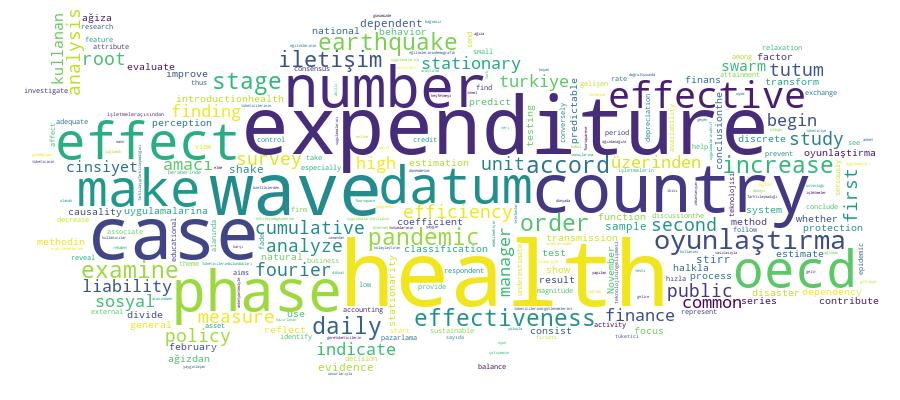Boduroğlu, Elif
Loading...
Profile URL
Name Variants
B., Elif
Boduroğlu,E.
E.,Boduroğlu
Elif, Boduroglu
E.,Boduroglu
Elif, Boduroğlu
Boduroglu,E.
B.,Elif
E., Boduroğlu
E., Boduroglu
Boduroglu, Elif
Boduroğlu, Elif
Boduroğlu,E.
E.,Boduroğlu
Elif, Boduroglu
E.,Boduroglu
Elif, Boduroğlu
Boduroglu,E.
B.,Elif
E., Boduroğlu
E., Boduroglu
Boduroglu, Elif
Boduroğlu, Elif
Job Title
Doktor Öğretim Üyesi
Email Address
elif.boduroglu@atilim.edu.tr
Main Affiliation
Business
Status
Website
ORCID ID
Scopus Author ID
Turkish CoHE Profile ID
Google Scholar ID
WoS Researcher ID
Sustainable Development Goals
2
ZERO HUNGER

0
Research Products
11
SUSTAINABLE CITIES AND COMMUNITIES

0
Research Products
14
LIFE BELOW WATER

1
Research Products
6
CLEAN WATER AND SANITATION

0
Research Products
1
NO POVERTY

0
Research Products
5
GENDER EQUALITY

0
Research Products
9
INDUSTRY, INNOVATION AND INFRASTRUCTURE

0
Research Products
16
PEACE, JUSTICE AND STRONG INSTITUTIONS

0
Research Products
17
PARTNERSHIPS FOR THE GOALS

0
Research Products
15
LIFE ON LAND

0
Research Products
10
REDUCED INEQUALITIES

0
Research Products
7
AFFORDABLE AND CLEAN ENERGY

0
Research Products
8
DECENT WORK AND ECONOMIC GROWTH

0
Research Products
4
QUALITY EDUCATION

0
Research Products
12
RESPONSIBLE CONSUMPTION AND PRODUCTION

0
Research Products
3
GOOD HEALTH AND WELL-BEING

0
Research Products
13
CLIMATE ACTION

0
Research Products

This researcher does not have a Scopus ID.

Documents
2
Citations
3

Scholarly Output
3
Articles
3
Views / Downloads
18/173
Supervised MSc Theses
0
Supervised PhD Theses
0
WoS Citation Count
3
Scopus Citation Count
3
WoS h-index
1
Scopus h-index
1
Patents
0
Projects
0
WoS Citations per Publication
1.00
Scopus Citations per Publication
1.00
Open Access Source
2
Supervised Theses
0
Google Analytics Visitor Traffic
| Journal | Count |
|---|---|
| Frontiers in Public Health | 1 |
| The Quarterly Review of Economics and Finance | 1 |
| Üçüncü Sektör Sosyal Ekonomi | 1 |
Current Page: 1 / 1
Competency Cloud


